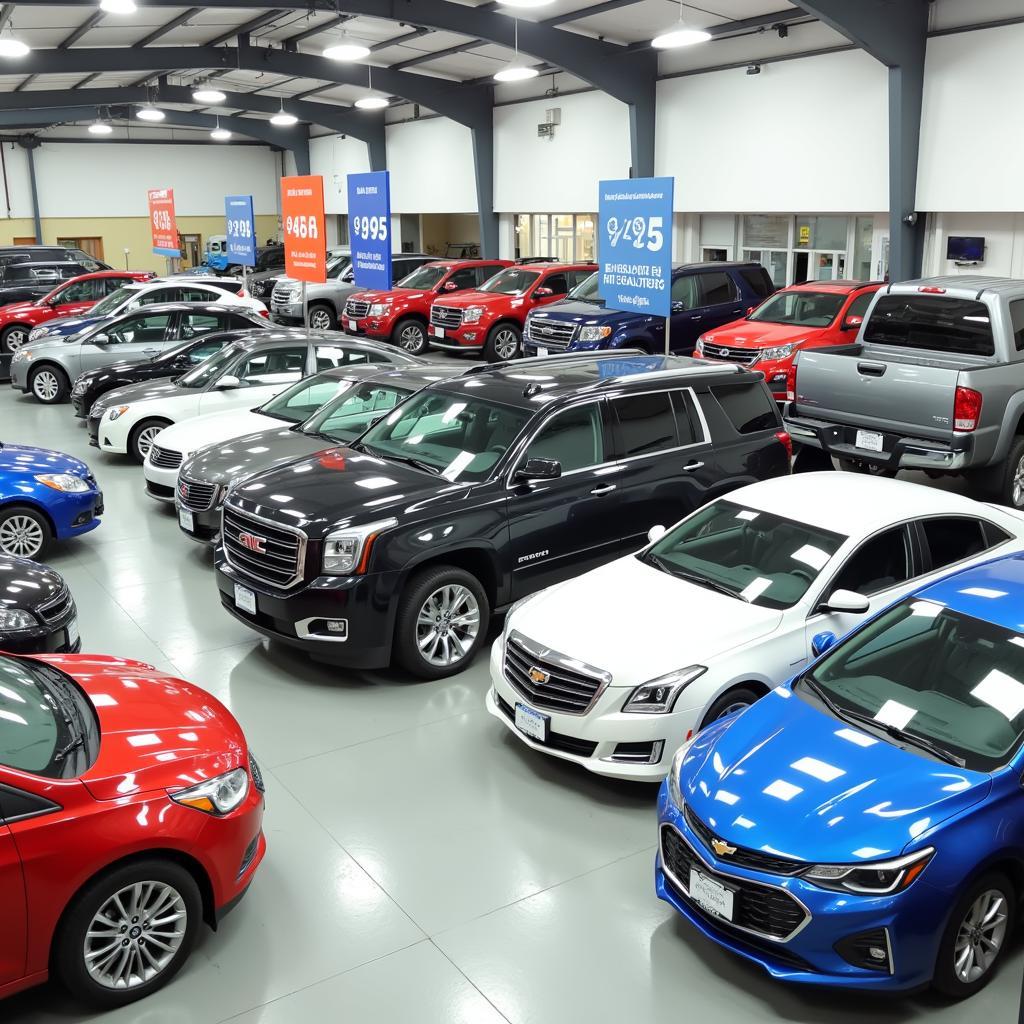Auto classification service plays a crucial role in both the retail and commercial automotive sectors. Understanding the nuances of these classifications helps businesses optimize their operations, target their marketing, and ultimately, boost their bottom line. Whether you’re a dealership, a fleet manager, or an individual car owner, knowing how auto classification works is essential.
Understanding Auto Classification in the Retail Sector
In the retail world, auto classification service primarily focuses on categorizing vehicles for sale to individual consumers. This involves segmenting cars based on factors like size, body style, features, and price point. Dealerships utilize this classification to organize their inventory, tailor their sales pitches, and effectively target specific customer demographics. For instance, a young family might be interested in a classified SUV, while a single professional might prefer a sleek sedan. This categorization simplifies the car buying process for customers, enabling them to easily find vehicles that match their needs and budget.
How Retail Auto Classification Benefits Consumers
- Simplified Search: Imagine searching for a “compact car” instead of sifting through hundreds of unrelated listings. Classification makes finding the right car easier.
- Targeted Marketing: Dealerships can offer personalized recommendations based on your preferred vehicle class.
- Price Transparency: Understanding the different classifications allows consumers to compare prices within specific categories.
 Retail Auto Classification in a Showroom
Retail Auto Classification in a Showroom
Auto Classification in the Commercial Sphere
Commercial auto classification service takes on a different dimension. Here, the focus shifts from individual consumer needs to the specific requirements of businesses. Vehicles are categorized based on their intended use, such as cargo transport, passenger transport, or specialized services. Think about the differences between a delivery van, a taxi, and a tow truck. Each serves a distinct purpose and falls under a different commercial classification. This distinction is critical for regulatory compliance, insurance purposes, and fleet management optimization.
Key Considerations for Commercial Auto Classification
- GVWR (Gross Vehicle Weight Rating): A key factor determining classification, impacting regulations and operating costs.
- Vehicle Usage: Whether it’s for hauling freight, transporting passengers, or providing specialized services.
- Industry Regulations: Different industries have specific classification requirements that must be adhered to.
The Future of Auto Classification Service: Data-Driven Insights
The future of auto classification is increasingly data-driven. Advanced analytics and machine learning algorithms are being used to analyze vast datasets of vehicle information, market trends, and consumer behavior. This allows for more precise classifications, personalized recommendations, and even predictive maintenance for commercial fleets.
How Data is Revolutionizing Auto Classification
- Predictive Analytics: Anticipating future maintenance needs based on usage patterns and vehicle classification.
- Personalized Recommendations: Tailoring vehicle suggestions for both retail and commercial customers based on their specific needs and preferences.
- Optimized Fleet Management: Improving efficiency and reducing costs through data-driven classification and analysis.
Conclusion
Auto classification service, whether in the retail or commercial context, is a vital component of the automotive industry. Understanding these classifications empowers businesses and consumers alike to make informed decisions, optimize operations, and navigate the complexities of the automotive landscape. By leveraging data-driven insights and staying abreast of industry trends, AutoServiceEu provides you with the knowledge you need to succeed in the ever-evolving world of auto classification.
FAQ
- What is the difference between retail and commercial auto classification?
- How does GVWR affect commercial auto classification?
- What are the benefits of data-driven auto classification?
- How can accurate auto classification benefit my business?
- Where can I find more information on auto classification standards?
- What are some common misclassifications of vehicles?
- How does auto classification impact insurance premiums?
Need support? Contact us via WhatsApp: +1(641)206-8880, Email: [email protected] or visit us at 321 Birch Drive, Seattle, WA 98101, USA. Our customer service team is available 24/7.

Leave a Reply